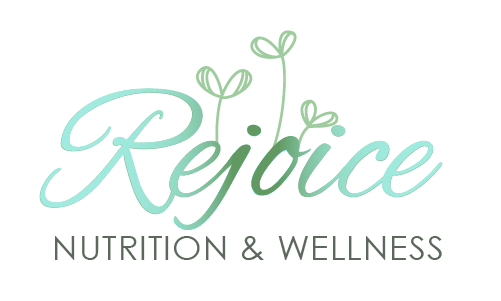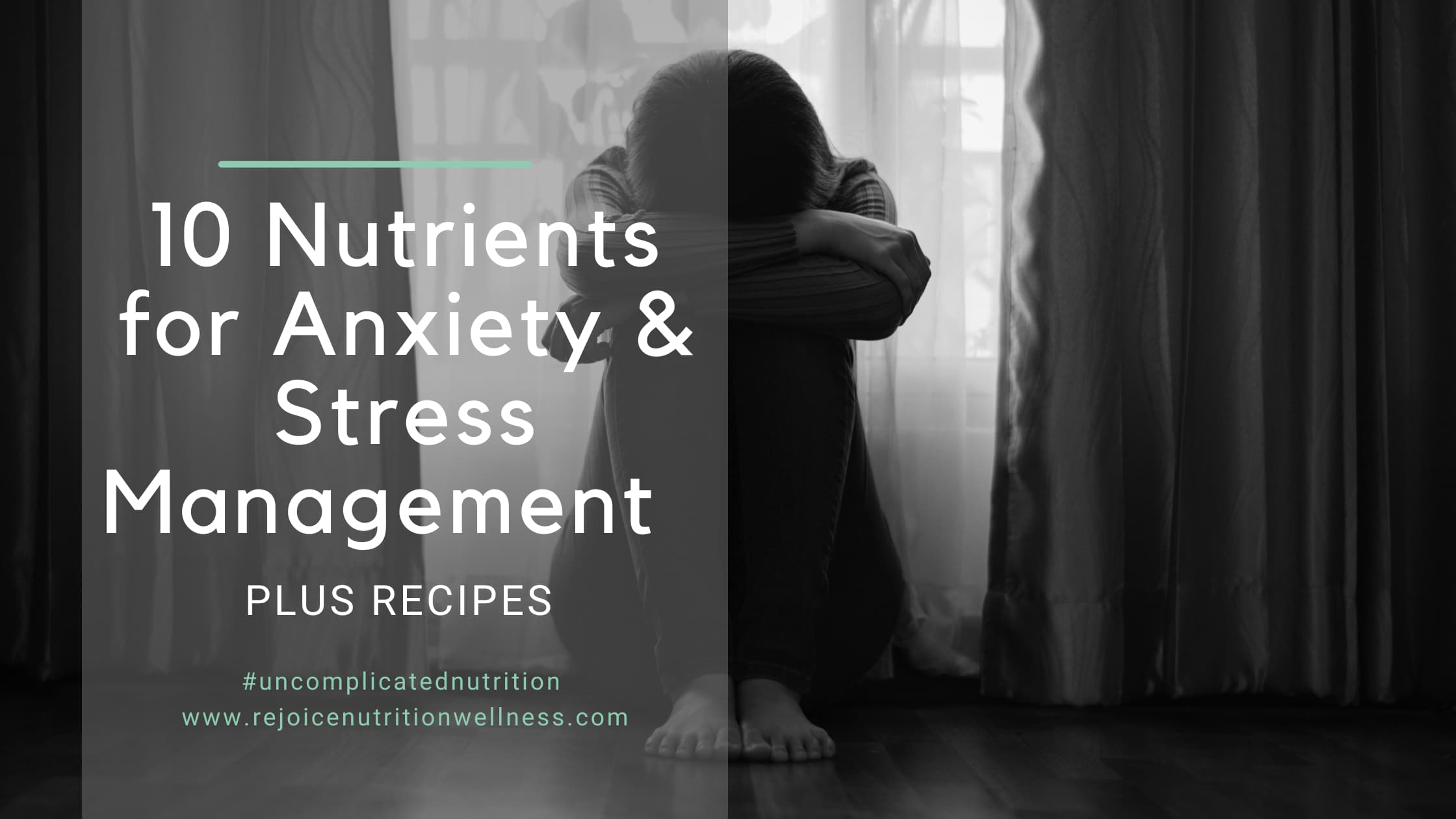Essential Building Blocks for Brain Function
Often the brain is referred to as a muscle, but is not a muscle at all! This 3-pound organ is the most complex organ within the human body.The brain contains 80 billion neurons, hormones, neurotransmitters, blood vessels, & capillaries. If it was not crowded enough in your head, the brain houses special cells (glial cells) that connect and communicate every feeling, emotion, action, and sensation within our body.
What does your Brain use as it's Raw Material to Grow & Thrive? ..FOOD!
The Intersection between Food and Mental Health Research is constantly changing the more we learn about our most complex organ in the body. The Brain consumes 20% of what you eat.
Critical Neurotransmitters need specific amino acids, vitamins, minerals, proteins, and fats to thrive.
What YOU EAT and YOUR Brain’s Wellness are interconnected which means your brain is made of the food you feed it.
For example, your Glial Cells need Omega 3’s. Zinc & Selenium both are used as building blocks and synthesize key neurotransmitters in the brain. Brain Hormones and chemicals need iron and folate to balance mood, and without Vitamin B’s nerve pulse communication for mood and cognition is impaired.
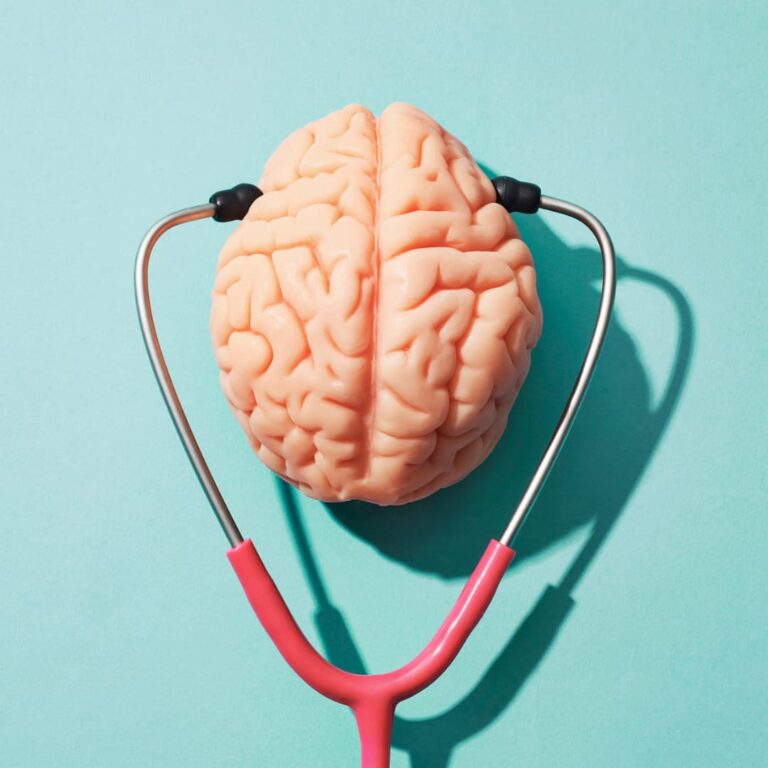
Nutrition & Mental Health are Connected
The following includes 10 Critical Nutrients plus Recipes for your brain health, address feelings of anxiety and stress while supporting your overall mental well-being. I have also included food sources for each nutrient for you, simply be intentional about adding as many of the following 10 nutrients to your plate each day to feed the brain and in turn address feelings of anxiety.
1) Vitamin A
Is Critical For:
Role in Producing DNA
Regulates Cell Growth
Role in Cell Division
Promote Cell Communication
Inflammation Management
Protects the Brain
Maintains Immune Health
Carotenoids convert to an Active form of Vitamin A in the body
Food Sources Include:
Carrots & Bell Peppers
Pumpkin & Squash
Sweet Potato & Yams
Chicken Liver
Mustard Greens
Spinach & Bok Choy
Kale & Collard Greens
Cantaloupe
Sea Vegetables
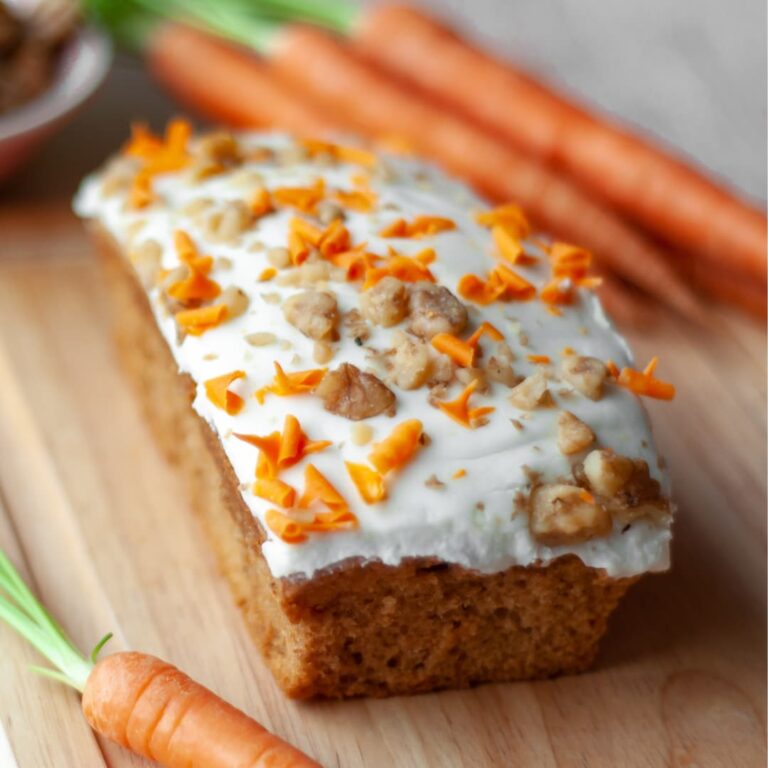
2) Potassium
Is Critical For:
Every Nerve Impulse & Heart Beat Depends on it
High Concentration in all Cells
Helps Cells Balance Homeostasis
Gets Oxygen to the Brain Relaying Signals from Neuron to Neuron
Low Levels are Linked to Mental Fatigue & Low Mood
Food Sources Include:
Kale & Bok Choy
Swiss Chard
Beet Greens
Brussels Sprouts
Melons
Fennel
Carrots & Celery
Lima Beans
Pinto & SoyBeans

3) Omega-3 Fats
Is Critical For:
Stimulates the Brain to Produce more Nerve Growth Factors
Promote Neuroplasticity (the brain’s ability to adapt, grow, and change).
Regulate and reduce brain inflammation
Plays a Vital Role in Brain Synaptic Function
Lack of Omega 3’s is associated with Anxiety, Depression, & a host of other Brain Disorders
Food Sources Include:
Flaxseeds & Walnuts
Sardines & Anchovies
Salmon & Tuna
Beef
Shrimp
Tofu
Cauliflower
Raspberries

4) Iron
Is Critical For:
Forming Hemoglobin to transport Oxygen into your Brain
A Key Role in the Development & Management of Anxiety & Depression
Creation of Dopamine & Serotonin (regulates mood, pleasure, joy, and focus)
Food Sources Include:
Dark Chocolate
Pumpkin Seeds
Red Meat
Cooked Spinach & Swiss Chard
Oysters
Sesame Seeds
Turmeric
Parsley
Leeks
Pinto Beans

5) Selenium
Is Critical for:
Reducing Brain Inflammation from Free Radical Damage
Protection from Oxidative Damage
Reproduction & DNA Synthesis
Glutathione Production for the Brain replies on Selenium
Transforming a Less Active Thyroid Hormone T4 into active T3. Anxiety & Depression are correlated with Low Thyroid
Food Sources Include:
Mushrooms
Lobster
Tuna
Shrimp
Halibut
Brazil Nuts
Mustard Seeds
Asparagus
Turkey
Chicken
Tofu
Flaxseeds
Cow’s Milk

6) Zinc
Is Critical for:
Cellular Processes
Immune Function
Inflammation Response
Involved in the Regulation of Synaptic Transmission and Neuroplasticity.
Crucial for Neurotransmitters like Glutamate and Serotonin
Low Levels of Zinc have been associated with Increased Risks of Depression & Anxiety
Food Sources Include:
Pumpkin Seeds
Beef
Asparagus
Garbanzo Beans
Lentils
Cashews
Quinoa
Turkey
Steak
Oysters
Yogurt

7) Vitamin B's
Is Critical for:
Fighting Inflammation
Reduces Homocysteine
Tryptophan Production
Role in Nervous System Production
Makes Neurotransmitters like Serotonin & Norepinephrine (=influence mood)
Role in Creating Melatonin for sleep which directly impacts Brain Health
Producing insulation that wraps brain cells to protect them
B12, along with DNA Controls Brain Shrinkage with Age
Makes Mood-Regulating Modules
Food Sources Include:
Wild Salmon
Dairy & Eggs
Beef Liver
Beans & Lentils
All Seafood
Lamb
Yogurt
Mushrooms
Nuts & Seeds
Barley & Brown Rice

8. Vitamin C
It’s Critical For:
- Managing Stress (our body does not store Vitamin C, & rapidly uses it at times of stress and anxiety
- Concentrated in the CSF (Cerebral Spinal Fluid) surrounding the Brain for Protection
- A major antioxidant to Fight Free Radical Damage in the Brain
Co-Factor in many biochemical reactions in the body
Food Sources Include:
Papaya
All Citrus
All Berries
Bell Peppers Broccoli
Brussels Sprouts
Kiwi
Cantaloupe
Turnip
Beet Greens
Bok Choy
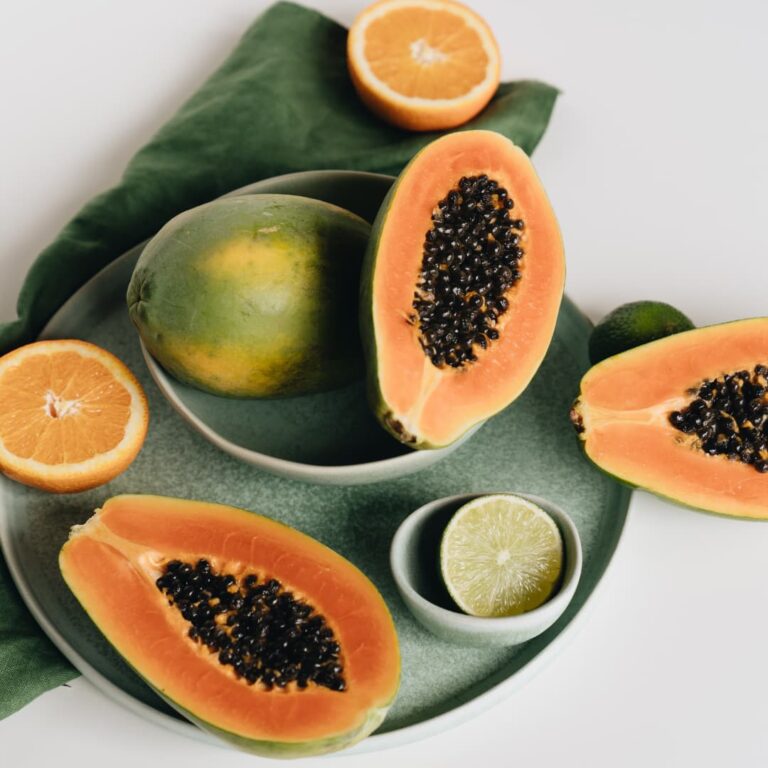
9. Magnesium
It’s Crucial for:
Production of DNA Responsible for over 500 Metabolic Reactions
The elasticity of the Brain
Known as the “anti-stress” mineral
NMDA Receptors in the membranes
Maintains Nervous System Balance.
Depression Connection. Research shows low levels of Magnesium in those with diagnosed Depression
Food Sources Include:
Quinoa
Pumpkin Seeds
Summer Squash
Soybeans
Brown Rice
Oats
Tofu
Black Beans
Cashews
Barley
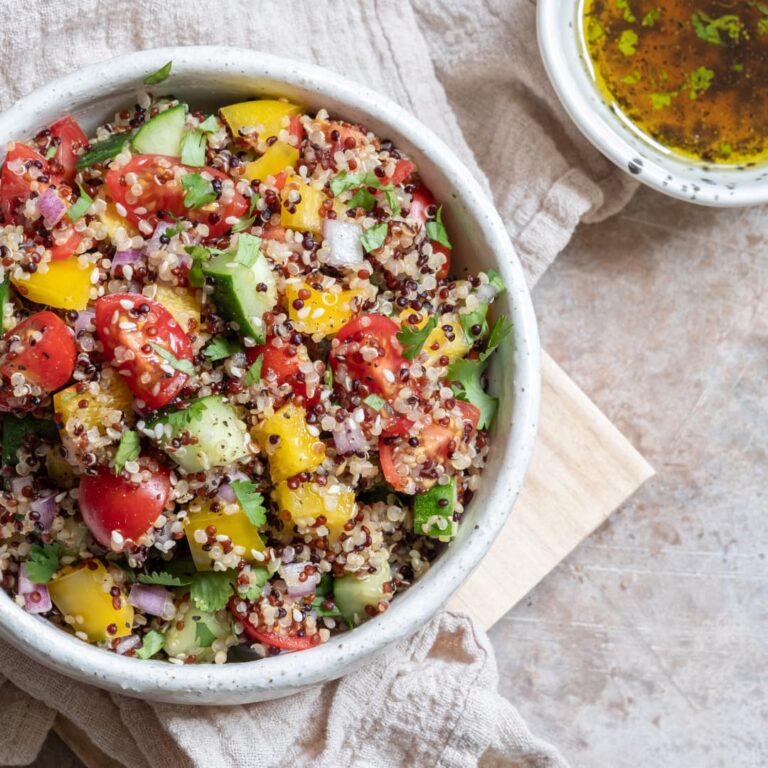
10. Vitamin D
Vitamin D Deficiency has been associated with Anxiety, Depression, and Fibromyalgia.
Vitamin D is a fat-soluble vitamin that is found in eggs, fatty fish, & cod liver oil.
Your body also makes its own Vitamin D with safe exposure to the sun.
For those that are plant-based and live in locations that have limited sunlight supplementation is very beneficial.
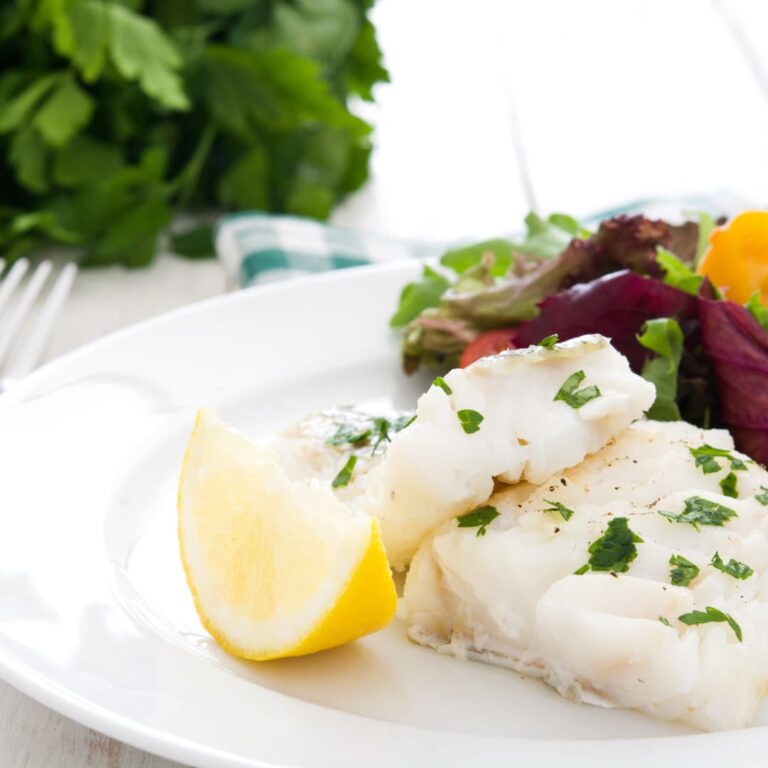
Looking for a Good Vitamin D or Cod Liver Oil Supplement to safeguard against Vitamin D deficiency? Let me help! Here is the link to the Fullscript Dispensary and I am happy to send you some recommendations from many brands from a variety of price ranges and access points.
Application of Nutrients
Be intentional to add as many of these nutrients onto your plate each day to support your brain health, and nervous system, and manage feelings of stress and anxiety.
If you are interested in diving deeper into supporting your mental health, check out the Eat to Ease Anxiety Online Program. This program is packed with resources, menus, workbooks, video lessons, and tools to crush anxiety and take back your life.
If you are not sure this program is right for you, book a FREE 15-Minute Discovery Call today.

